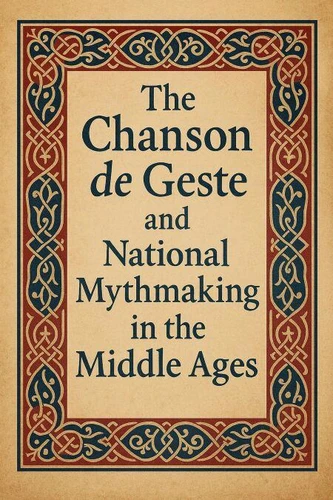The Chanson de Geste and National Mythmaking in the Middle Ages
Par :Formats :
Disponible dans votre compte client Decitre ou Furet du Nord dès validation de votre commande. Le format ePub est :
- Compatible avec une lecture sur My Vivlio (smartphone, tablette, ordinateur)
- Compatible avec une lecture sur liseuses Vivlio
- Pour les liseuses autres que Vivlio, vous devez utiliser le logiciel Adobe Digital Edition. Non compatible avec la lecture sur les liseuses Kindle, Remarkable et Sony
 , qui est-ce ?
, qui est-ce ?Notre partenaire de plateforme de lecture numérique où vous retrouverez l'ensemble de vos ebooks gratuitement
Pour en savoir plus sur nos ebooks, consultez notre aide en ligne ici
- FormatePub
- ISBN8230791409
- EAN9798230791409
- Date de parution01/04/2025
- Protection num.pas de protection
- Infos supplémentairesepub
- ÉditeurIndependently Published
Résumé
The Chanson de Geste is an ancient form of epic poetry that holds an undeniable place in the heart of medieval French literature. Its roots trace back to the early Middle Ages, a time when the fabric of Europe was being torn apart by invasions, feudal fragmentation, and the slow consolidation of Christian monarchies. The term itself, "chanson de geste, " translates roughly as "song of deeds, " signifying a narrative tradition that celebrated the valor, heroism, and virtuous actions of legendary figures, often set within the context of both historical and mythical landscapes.
Its rise, rooted in the dark centuries of post-Roman Europe, was not just a literary phenomenon but also a crucial part of a cultural movement that sought to define and defend new identities emerging from the ruins of the old.
Its rise, rooted in the dark centuries of post-Roman Europe, was not just a literary phenomenon but also a crucial part of a cultural movement that sought to define and defend new identities emerging from the ruins of the old.
The Chanson de Geste is an ancient form of epic poetry that holds an undeniable place in the heart of medieval French literature. Its roots trace back to the early Middle Ages, a time when the fabric of Europe was being torn apart by invasions, feudal fragmentation, and the slow consolidation of Christian monarchies. The term itself, "chanson de geste, " translates roughly as "song of deeds, " signifying a narrative tradition that celebrated the valor, heroism, and virtuous actions of legendary figures, often set within the context of both historical and mythical landscapes.
Its rise, rooted in the dark centuries of post-Roman Europe, was not just a literary phenomenon but also a crucial part of a cultural movement that sought to define and defend new identities emerging from the ruins of the old.
Its rise, rooted in the dark centuries of post-Roman Europe, was not just a literary phenomenon but also a crucial part of a cultural movement that sought to define and defend new identities emerging from the ruins of the old.






















